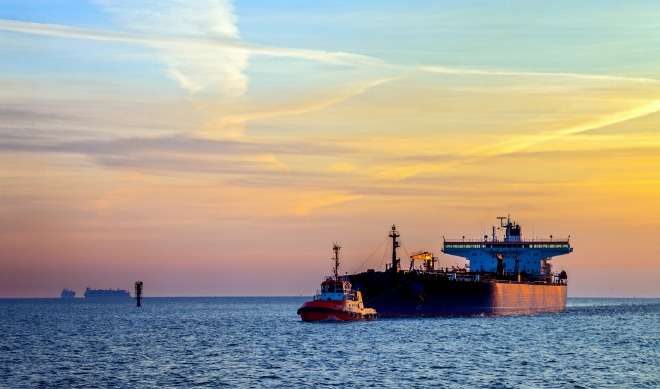How OFAC’s sanctions advisory is changing the maritime industry for good

Simon Ring from Pole Star on how shipping has had to respect sanctions compliance over the past year.
When OFAC, the US State Department and the US Coastguard issued their long-awaited maritime sanctions advisory a year ago, it was a landmark moment.
The guidance was the first to target the wider maritime industry, and it sought to make clear that the onus of responsibility for sanctions compliance lies with everyone across the supply chain, and stressed the need for the private sector to plug the many holes currently used to circumvent sanctions. The advisory became instantly pivotal for all those with exposure to maritime trade.
While non-binding, there was a clear message to ship-owners, operators, managers, charterers, brokers, flags, ports, shippers, freight forwarders, commodity traders, insurers, and financial institutions. They must improve their compliance programmes to avoid breaching US sanctions, or face the consequences. Very quickly, other global regulators fell in line, such as the UK Office of Financial Sanctions Implementation.
After 12 months we can see the impact of this advisory on sanctions-flouting activities relating to Venezuela and North Korea. Last June, for example, OFAC took action against a Panamanian-flagged crude oil tanker owner after the vessel reportedly delivered 515,000 barrels of Venezuelan oil to Qingdao and engaged in illicit ship-to-ship transfer of more oil near Malaysia. A designation for similar activities was also applied to Romania Maritime Co. Inc, owner of a Liberian-flagged tanker.
In December, OFAC designated six companies and four vessels for violating existing UN sanctions by engaging in the prohibited North Korean coal trade. This highlighted weaknesses within the global supply chain allowing individuals, companies, and corporate service providers to facilitate, both knowingly and unknowingly, the sanctions evasion activities of North Korea and, as a consequence, its weapons of mass destruction programmes.
This year, there has been no let-up in OFAC activity. The organisation has sanctioned and placed on the Specially Designated Nationals list, three people, 14 entities and six vessels for breaching trade sanctions with Venezuela. The US Department of Justice has also brought charges against one individual for orchestrating shipments to North Korea. The charges relate to the use of front companies and false documentation in order to send money through the US financial system.
The US government is determined to hold every individual or entity to account, including port authorities that permit sanctioned vessels to use facilities. The backwash of this is that everyone must now be more vigilant than ever because as OFAC has made clear, nobody is above the regulations – or the penalties for infringing them. Global regulatory bodies, including OFAC, have also hammered home the message that feigning ignorance is no longer an excuse.
What then can legitimate businesses in the maritime sector do to avoid inadvertent complicity in sanctions breaches? It will certainly help if organisations demonstrate they have a sanctions compliance programme in place using an audit trail of best efforts. This will vastly reduce the burdens relating to the provision of evidence.
Organisations need access to all details relating to a vessel, screening its ownership and management against global, national and company sanctions lists. For full visibility, they must monitor a ship’s location continuously, using technologies that work even when AIS data is unavailable. An organisation should have access to analyses of reporting gaps, their frequency and the vessel’s presence in high-risk locations, draught changes or proximity to suspicious ships. In other words, a full picture of a vessel’s activities is required.
Demonstrating and practising compliance in this way will also ultimately ensure operational continuity, should the authorities launch an investigation. Adoption of digital technologies to achieve this through automation and streamlining has become essential, saving time while providing fast access to accurate and incorruptible audit reports.
In the year that has passed since the OFAC advisory, the entire maritime industry should have learned that sanctions compliance is a deadly serious business. To neglect such an increasingly critical area is to risk the severe damage of blacklisting, the issuance of criminal charges, and catastrophic reputational damage. The good news is that organisations can protect themselves through greater vigilance and the adoption of more advanced and automated regulatory technology.
